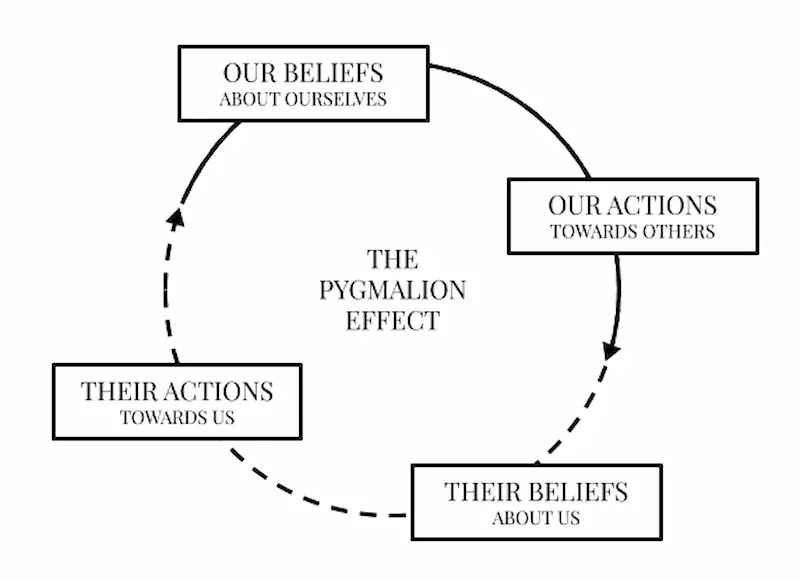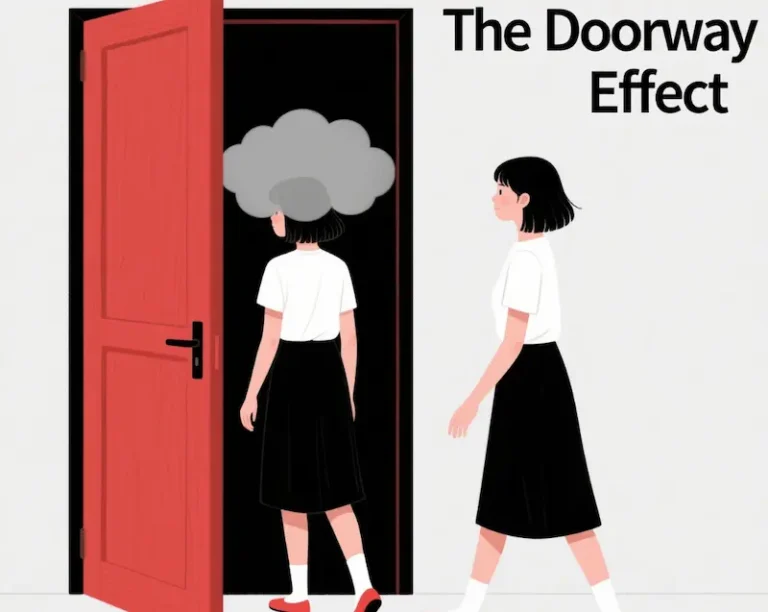The Rosenthal Effect (Pygmalion Effect): How Expectations Shape Success in Education, Work, and Life

Have you ever noticed how a single word of encouragement can completely change someone’s motivation?
Maybe you were in school, and one teacher’s offhand compliment lit a fire under you to study harder. Or perhaps in your career, a manager’s supportive glance or quick praise gave you the energy to push through tough challenges.
This isn’t just coincidence—it’s a psychological principle called the Rosenthal Effect, also known as the Pygmalion Effect. It demonstrates how the expectations of others can profoundly shape our behavior, motivation, and eventual success.
In this article, we’ll explore the origins of this effect, why it works, and how you can apply it in education, the workplace, and personal life to unlock hidden potential.
What Is the Rosenthal Effect?
The Rosenthal Effect was first identified by American psychologist Robert Rosenthal in the late 1960s. In his now-famous study, Rosenthal and school principal Lenore Jacobson visited an elementary school in California. They told teachers that a select group of students had scored highly on a “test predicting intellectual growth.”
What the teachers didn’t know was that the students were chosen completely at random. There was no special test.
Yet, when researchers returned months later, the “chosen” students had significantly improved their academic performance. They participated more in class, showed greater confidence, and were rated as more capable by their teachers.
The conclusion was groundbreaking: when teachers believed in students’ potential, the students lived up to those expectations.
That’s why the Rosenthal Effect is also called the self-fulfilling prophecy—our beliefs and expectations about others can shape their reality.

Why the Rosenthal Effect Works
1. The Power of Self-Fulfilling Prophecies
When someone is told “you have potential,” it plants a psychological seed. The individual begins to internalize the belief and unconsciously adjusts behavior to match it.
A student who feels “seen” by their teacher will study harder. An employee who feels trusted by their boss will step up and take initiative.
2. Emotional Nourishment Through Positive Attention
High expectations are usually paired with more encouragement, mentorship, and emotional support. Teachers spend extra time with students they believe in. Managers provide more feedback and opportunities to employees they trust. Parents nurture confidence in children they expect to thrive.
This creates a safe, motivating environment where people can take risks and grow.
3. Motivation and Reinforcement Loops
Positive expectations trigger a feedback cycle:
- Small progress earns praise.
- Praise builds confidence.
- Confidence leads to greater effort.
- Effort drives larger achievements.
This cycle compounds, turning minor improvements into lasting success.
Applying the Rosenthal Effect in Education
The classroom is where the Rosenthal Effect is most visible. A teacher’s expectations can lift—or limit—a child’s potential.
Practical ways for teachers and parents to apply this principle:
- Spot the small wins: Instead of vague praise (“Good job”), be specific: “I noticed your essay used very vivid details. Keep building on that strength.”
- Encourage progress, not just outcomes: Celebrate effort and creativity, even if results aren’t perfect.
- Set layered goals: Give struggling students realistic milestones so they can experience small victories on their way to improvement.
- Parental support: Instead of criticizing poor grades, parents can say: “You’re smart—you just haven’t found the right strategy yet. We believe in your next attempt.”
This approach not only boosts performance but also builds resilience and long-term self-confidence.
The Pygmalion Effect in the Workplace
In professional settings, expectations from leaders can directly impact productivity, morale, and career growth.
Managers can leverage the Pygmalion Effect by:
- Identifying hidden strengths: Assign tasks that match employees’ skills and tell them why you trust them with it.
- Example: “Your data analysis is sharp. I’d like you to lead this research project because I know you’ll find the key insights.”
- Delivering timely recognition: Acknowledge contributions immediately—small wins fuel motivation.
- Balancing encouragement with constructive feedback: Even when performance falls short, frame feedback around growth: “This part can improve, but I know you’re capable of getting it right next time.”
- Building a culture of trust: Teams thrive when they know their leaders genuinely believe in their potential.
According to a Gallup study (2019), employees who feel their strengths are recognized are 6x more engaged and 3x more likely to report excellent quality of life. This is the Rosenthal Effect in action on a company-wide scale.
Using the Rosenthal Effect in Personal Relationships and Self-Growth
The influence of expectations doesn’t stop at school or work—it affects friendships, families, and even how we see ourselves.
In Friendships
Friends who cheer us on can change our trajectory. Imagine sharing your goal of running a marathon. If your best friend responds, “You’ve got this—I know you’ll crush it,” it makes you more likely to train consistently.
In Family Life
Encouragement at home shapes identity. Children who hear “We believe in you” grow up with greater resilience than those who only hear criticism.
In Self-Talk
You can be your own Rosenthal Effect. Daily affirmations, like “I’m capable of overcoming today’s challenges,” prime your brain to act with confidence. Psychologists call this positive self-expectancy, and studies show it increases persistence and problem-solving ability.
Criticism and Limitations
Of course, not every expectation automatically leads to success. Critics point out that:
- Overly high or unrealistic expectations can create stress and burnout.
- Negative expectations can also come true (the Golem Effect). If someone is constantly told they’re “not good enough,” they may underperform.
- Cultural differences matter—some societies place more emphasis on collective achievement, altering how expectations affect individuals.
Still, decades of research suggest that when applied thoughtfully, positive expectations consistently boost motivation and outcomes.
Conclusion: Becoming a Catalyst for Growth
As psychologist William James once said, “The deepest principle in human nature is the craving to be appreciated.”
The Rosenthal Effect shows us that our words, beliefs, and expectations can shape others’ futures. Whether you’re a teacher, manager, parent, friend, or simply guiding your own self-growth, choosing to expect the best can unlock hidden potential.
Next time you interact with someone, remember: a simple belief in their ability might just change their life.
CTA
If you found this article helpful, share it with a friend or colleague who could use a boost of encouragement.
Want to dive deeper? Check out our other psychology articles on motivation, leadership, and personal growth to keep expanding your mindset.






